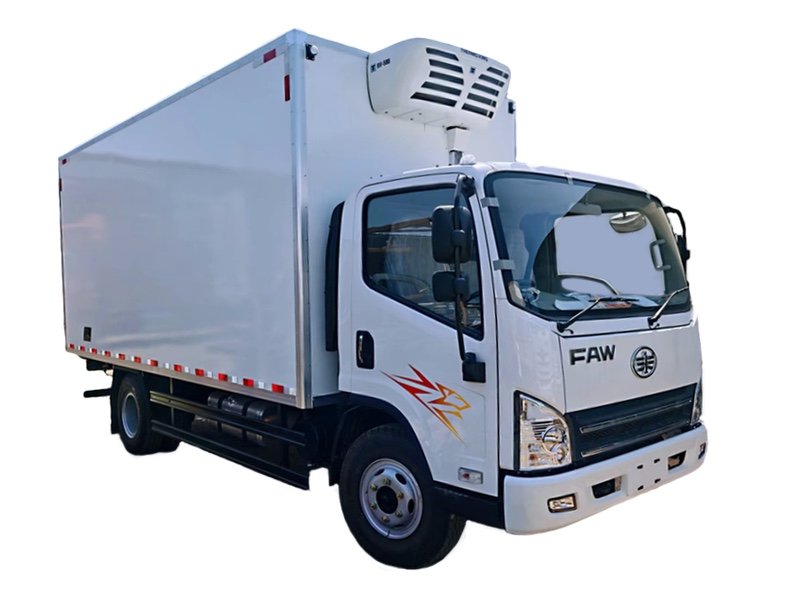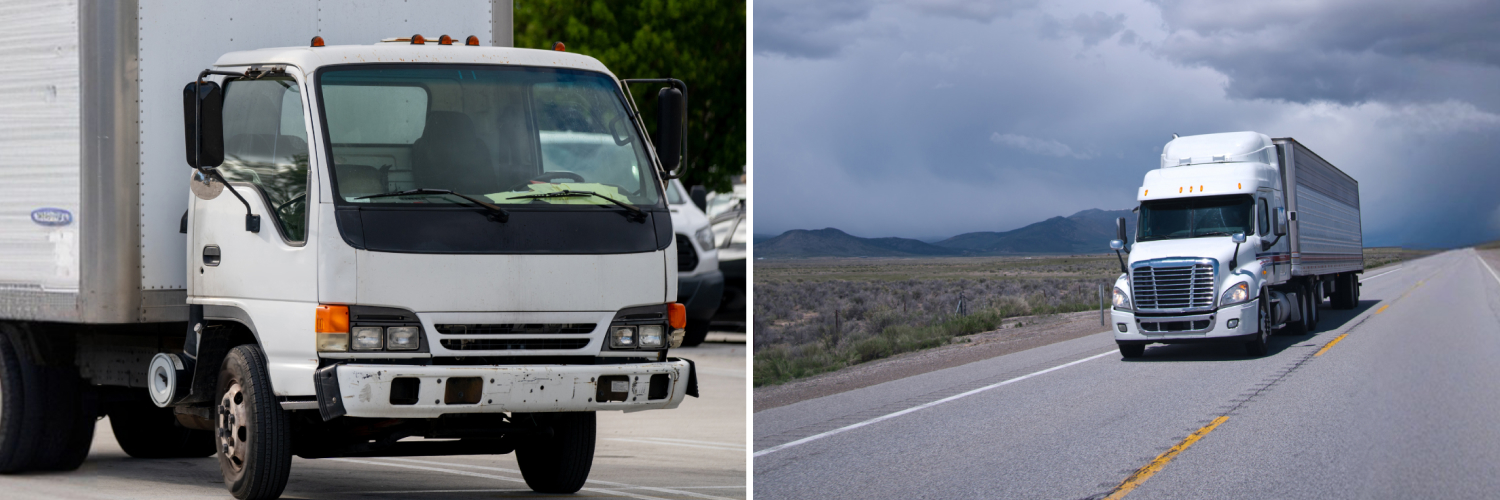Thermo King Transport Refrigeration: Top Quality Cooling for Cargo
Thermo King Transport Refrigeration: Top Quality Cooling for Cargo
Blog Article
Top Innovations in Transportation Refrigeration: Enhancing Effectiveness and Security
The landscape of transport refrigeration is going through significant transformation, driven by technologies aimed at enhancing both effectiveness and safety and security. As these technologies continue to progress, it is crucial to discover their implications on operational techniques and regulative conformity, triggering a better assessment of just how they improve the future of transportation refrigeration.
Smart Temperature Level Checking Systems
In the world of transport refrigeration, smart temperature monitoring systems have actually become a crucial innovation for making certain the honesty of temperature-sensitive items. These advanced systems take advantage of Net of Points (IoT) innovation to supply real-time data on temperature changes, making it possible for operators to maintain ideal conditions throughout the supply chain. By continually tracking the temperature of refrigerated containers and automobiles, companies can promptly identify discrepancies that may compromise product high quality.

Additionally, smart surveillance systems commonly integrate automated informs and notifications, allowing stakeholders to react promptly to any prospective issues. This aggressive method not only reduces the danger of perishing however also improves conformity with governing standards governing food security and pharmaceutical transportation.
The assimilation of information analytics within these systems additionally facilitates predictive maintenance, aiding operators to foresee prospective devices failures before they take place. This capacity minimizes downtime and maximizes functional efficiency, ultimately resulting in cost financial savings.
Eco-Friendly Refrigerants
Smart temperature level tracking systems play a vital role in keeping product quality, however the efficiency of transport refrigeration likewise rests on the option of cooling agents used. As ecological problems increase, the shift towards environment-friendly refrigerants has become vital. Traditional cooling agents, such as hydrofluorocarbons (HFCs), are notorious for their high International Warming Prospective (GWP), adding dramatically to climate change. On the other hand, arising alternatives like hydrocarbon-based cooling agents and hydrofluoroolefins (HFOs) existing lower GWP alternatives, offering both effectiveness and sustainability.
These environmentally friendly refrigerants not just minimize environmental impact however likewise straighten with international laws targeted at terminating dangerous materials. Their adoption can lead to boosted power effectiveness, inevitably reducing operating costs for transportation refrigeration systems. Moreover, the use of natural refrigerants, such as ammonia and carbon dioxide, has gained grip as a result of their superb thermodynamic homes and lower environmental footprint.
Buying eco-friendly refrigerants is not just a governing compliance measure; it stands for a calculated decision that boosts brand credibility and fosters consumer loyalty. thermo king transport refrigeration. By focusing on sustainable techniques, business can add to a greener future while making sure the integrity of carried products
Advanced Insulation Materials
Using sophisticated insulation products is vital for optimizing transportation refrigeration systems, as they substantially improve energy efficiency and keep regular temperature level control. Conventional insulation approaches usually drop brief in stopping thermal transfer, causing increased energy intake and varying temperature levels within refrigerated areas.
Arising materials such as vacuum shielded panels (VIPs) and aerogels provide remarkable thermal resistance, allowing for thinner profiles without endangering performance. VIPs, as an example, use a vacuum cleaner layer to minimize conductive and convective warm transfer, making them suitable for space-constrained applications. Aerogels, known for their porous and lightweight framework, provide exceptional insulation while substantially reducing overall system weight.
Additionally, including stage change materials (PCMs) into insulation systems can even more support temperature levels throughout transportation. These products absorb and release thermal energy, efficiently buffering against outside temperature level variants.
The assimilation of these innovative insulation products not just reduces the operational costs connected with power usage however likewise prolongs the service life of temperature-sensitive products. As the transport refrigeration industry remains to develop, the adoption of innovative insulation technologies will be crucial in improving both efficiency and safety in cooled transportation.
Automated Route Optimization
The performance of transportation refrigeration systems is greatly improved through automated course optimization, which leverages advanced formulas and real-time information to identify the most reliable paths for distribution. By examining different factors such as website traffic patterns, weather condition problems, and shipment home windows, these systems can substantially minimize traveling time and gas intake.
Automated route optimization reduces human error and subjective decision-making, which can bring about inefficiencies. This technology allows fleet supervisors to allot sources a lot more efficiently, guaranteeing that refrigerated products preserve their called for temperature level throughout the trip. By optimizing courses, companies can additionally improve customer complete satisfaction via prompt shipments.
Additionally, automated systems can adapt to unanticipated scenarios, such as roadway closures or abrupt web traffic spikes, permitting vibrant rerouting. This adaptability not just secures the honesty of temperature-sensitive products but also blog here adds to general operational effectiveness.
Carrying out automated route optimization can lead to significant expense financial savings while minimizing the carbon footprint connected with transport. As businesses progressively focus on sustainability, this innovation stands apart as an essential part in modern transportation refrigeration, lining up operational goals with environmental obligation. Eventually, automated route optimization represents a substantial improvement in the pursuit for efficiency and safety in transport refrigeration.

Real-Time Information Analytics
Automated course optimization dramatically take advantage of the integration of real-time data analytics, which gives crucial understandings into the performance of transportation refrigeration systems. By using real-time data, transportation drivers can monitor temperature fluctuations and devices performance, guaranteeing that perishable items are kept within called for specifications throughout transportation. This aggressive technique not just enhances the top quality of the transported items but additionally mitigates the threat of wasting and loss.

Along with boosting effectiveness, real-time analytics improves safety and security by making sure compliance with governing requirements for temperature control. This not only secures public wellness however likewise strengthens a company's track record - thermo king truck refrigeration. As the transport refrigeration sector progresses, the integration of real-time information analytics emerges as a keystone for driving advancement, sustainability, and operational quality
Conclusion
In final thought, the improvements in transport refrigeration dramatically improve both efficiency and security within the sector. Smart temperature surveillance systems and real-time data analytics give important oversight, while eco-friendly cooling agents and advanced insulation materials add to sustainability and power efficiency. Additionally, automated route optimization formulas not only minimize travel time but likewise decrease environmental influence. Jointly, these advancements represent a vital advancement in transportation refrigeration, guaranteeing conformity with regulative criteria and advertising a greener future.
The landscape of transport refrigeration is undergoing significant change, driven by advancements intended at improving both effectiveness and security.Smart temperature level tracking systems play a crucial function in preserving item high quality, however the efficiency of transport refrigeration also hinges on the choice of cooling agents made use of. Their fostering can lead to boosted power effectiveness, eventually minimizing operating their website prices for transport refrigeration systems. Eventually, automated path optimization represents a significant improvement in the mission for effectiveness and security in transport refrigeration.
In conclusion, the advancements in transport refrigeration significantly boost both performance and security within the industry.
Report this page